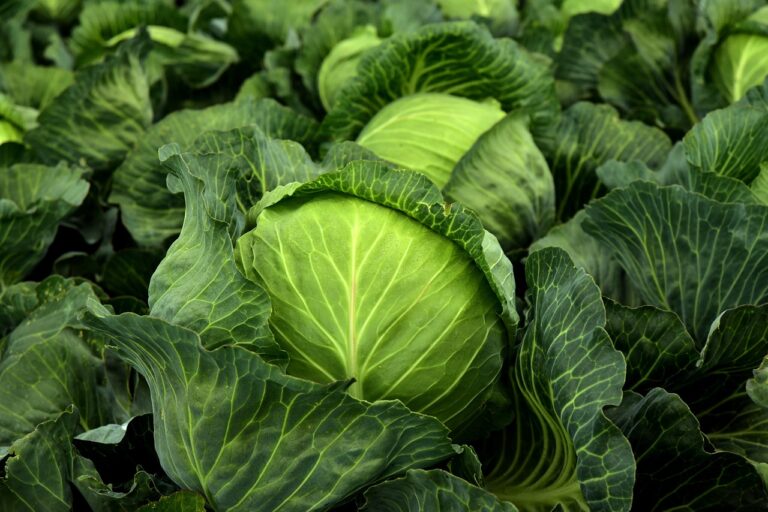Analyzing the Role of Cereal in Plant-Based Diets: Environmental Impact
11xplay online, indian 24bet, skyinplay login:Analyzing the Role of Cereal in Plant-Based Diets: Environmental Impact
In recent years, there has been a growing trend towards plant-based diets as people become more conscious of the impact of their food choices on the environment. Cereal, in particular, plays a vital role in plant-based diets as it provides essential nutrients and energy. However, there is a need to analyze the environmental impact of cereal production to determine if it is truly sustainable.
Impact of Cereal Production on the Environment
Cereal crops, such as wheat, rice, and corn, are some of the most widely cultivated crops in the world. The intensive farming practices used to grow these crops can have significant environmental impacts, including:
1. Water Usage: Cereal crops require large amounts of water to grow, which can lead to water scarcity in regions with limited water resources.
2. Pesticide Use: Pesticides are often used in cereal production to control pests and diseases, which can have harmful effects on the environment and human health.
3. Soil Degradation: Intensive farming practices can deplete the soil of nutrients and lead to soil erosion, reducing its fertility and productivity.
4. Greenhouse Gas Emissions: Cereal production contributes to greenhouse gas emissions, mainly through the use of synthetic fertilizers and the machinery used in farming operations.
5. Biodiversity Loss: Monoculture farming of cereal crops can lead to a loss of biodiversity as it reduces the variety of plant and animal species in the area.
Sustainable Practices in Cereal Production
To mitigate the environmental impact of cereal production, farmers and policymakers are increasingly adopting sustainable practices, such as:
1. Organic Farming: Organic farming avoids the use of synthetic pesticides and fertilizers, relying instead on natural methods to enhance soil fertility and control pests.
2. Conservation Agriculture: Conservation agriculture practices, such as minimum tillage and crop rotation, help to improve soil health and reduce erosion.
3. Water Management: Implementing water-efficient irrigation systems, such as drip irrigation, can help reduce water usage in cereal production.
4. Agroforestry: Integrating trees and shrubs into cereal farming systems can help enhance biodiversity, improve soil quality, and sequester carbon.
5. Renewable Energy: Utilizing renewable energy sources, such as solar power, in farming operations can reduce greenhouse gas emissions.
The Role of Cereal in Plant-Based Diets
Cereal grains are a staple food in plant-based diets as they are rich in carbohydrates, fiber, vitamins, and minerals. They provide a significant source of energy and nutrients for people following a vegetarian or vegan diet. Cereal grains can be consumed in various forms, including whole grains, flour, and processed products like bread, pasta, and breakfast cereals.
Cereal grains, such as wheat, rice, oats, and barley, are versatile ingredients that can be used in a wide range of dishes, from porridge and soups to salads and baked goods. They are also a cost-effective and readily available source of nutrition, making them an essential component of plant-based diets.
FAQs
1. Are all cereals environmentally friendly?
While cereal production can have significant environmental impacts, some cereals, such as rice and wheat, are more resource-intensive than others. Choosing locally grown, organic, and sustainably produced cereals can help reduce the environmental footprint of your diet.
2. How can I incorporate more cereals into my plant-based diet?
You can incorporate more cereals into your plant-based diet by including whole grains, such as quinoa, buckwheat, and millet, in your meals. You can also experiment with different recipes, such as grain bowls, stir-fries, and grain-based salads, to diversify your diet.
3. What are the benefits of including cereals in a plant-based diet?
Cereals are a rich source of carbohydrates, fiber, vitamins, and minerals, such as iron, zinc, and magnesium. They provide essential nutrients and energy for overall health and well-being, making them a valuable component of a plant-based diet.
In conclusion, cereal plays a crucial role in plant-based diets, providing essential nutrients and energy for individuals following a vegetarian or vegan lifestyle. However, it is essential to consider the environmental impact of cereal production and adopt sustainable practices to minimize its footprint on the planet. By making informed food choices and supporting sustainable agriculture, we can enjoy the benefits of cereal while protecting the environment for future generations.





